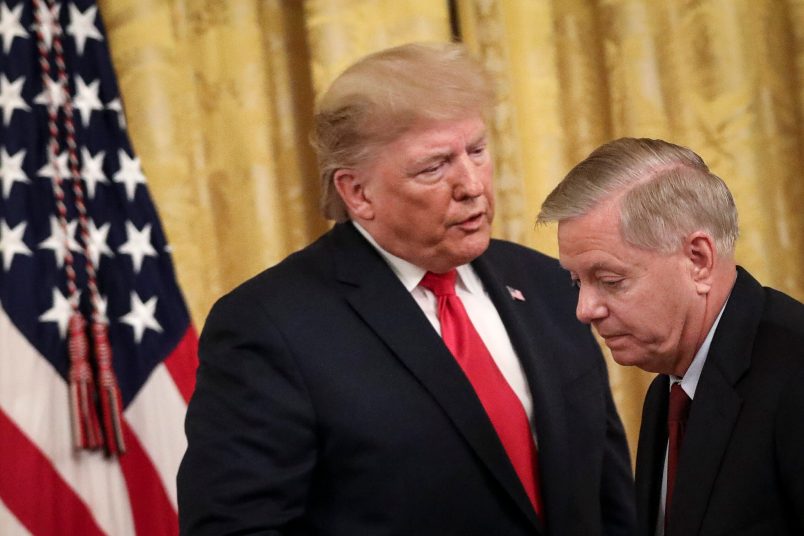House Judiciary Chairman Jerry Nadler’s argument Thursday against President Trump’s interpretation of what constitutes an impeachable offense used the words of Trump’s top supporters against him.
At the Senate impeachment trial, Nadler played clips or showed writings of Attorney General Bill Barr, Sen. Lindsay Graham (R-SC) and Alan Dershowitz, a lawyer on Trump’s defense team, that contradicted the legal claims that Trump made in legal briefs filed over the weekend.
“Abuse of power is clearly an impeachable offense under the Constitution. To be honest, this should not be a controversial statement. I find it amazing that the president rejects it, yet he does,” Nadler said as he teed up the clips.
In their legal brief, Trump’s lawyers argued that “abuse of power” was a theory “newly invented” by Democrats that “collapses at the threshold” of impeachment “because it fails to allege any violation of law whatsoever.”
Nadler’s presentation in front of the Senate trial, which kicked off Thursday’s proceedings, was focused on rebuking those assertions and laying out why Trump’s Ukraine-related conduct warrants his removal.
To rebut Trump’s claim that abuse of power is not an impeachable offense, Nadler played a Dershowitz clip from 1998, when the House was considering Bill Clinton’s impeachment.
“It certainly doesn’t have to be a crime. If you have somebody who completely corrupts the office of President and who abuses trust and who poses great danger to our liberty, you don’t need a technical crime,” Dershowitz said then.
Nadler also presented a 2018 memo written by Barr, before he was appointed by Trump, that referenced impeachment while arguing against criminally indicting a President.
Barr wrote that the fact that the President “is answerable for any abuses of discretion and is ultimately subject to the judgment of Congress through the impeachment process means that the president is not the judge in his own cause.”
“In other words, Attorney General Barr, who believes, along with the [Justice Department] Office of Legal Counsel, that a president may not be indicted, believes that that’s okay, we don’t need that safeguard against a president who would commit abuses of power. It’s okay, because he can be impeached,” Nadler said.
Addressing Trump’s assertion that a president must violate a statute to be impeached, Nadler played a clip of Graham from when he was a House manager in the Clinton impeachment.
“What’s a high crime?” Graham said. “How about if an important person hurts somebody of low means? It’s not very scholarly. But I think it’s the truth. I think that’s what they meant by high crime. It doesn’t even have to be a crime. It’s just when you start using your office and you’re acting in a way that hurts people. You’ve committed a high crime.”
Graham had exited the chamber by the time the clip of his remarks was being played.
Nadler also pointed to an op-ed written by law professor Jonathan Turley, as well as Turley’s testimony in front of Congress last year. Turley, a favorite on Fox News, was the Republicans’ witness at one of the House Judiciary Committee’s impeachment hearings, where he argued that the House had not gathered enough evidence to prove the Trump conduct it alleged.
“The use of military aid for a quid pro quo to investigate one’s political opponent, if proven, can be an impeachable offense,” Turley said in written testimony Nadler displayed on the screen.
Nadler also read what Turley had to say in a recent op-ed about Trump’s current legal arguments.
“It is an argument that is as politically unwise as it is constitutionally shortsighted,” Turley said in the op-ed.



